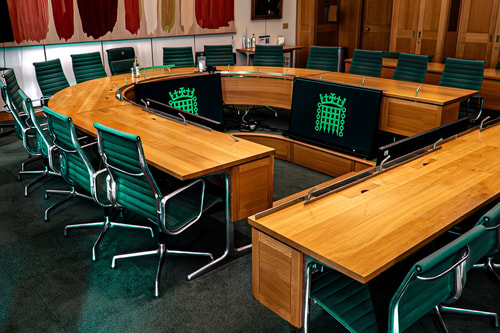In January 2023, MPs from the Health and Social Care Committee launched an inquiry into assisted dying/suicide. Here is a brief summary of the concerns we raised in legalising assisted suicide in the UK.
As Christians, we believe in the sanctity of life, all human beings are image bearers of God. This means that even in our most vulnerable state, we are still of value to God. He loved us even before we were born, and He continues to love us up to and beyond our final stages of life on earth.
When it comes to end-of-life care, we believe there is a better way to make sure people are comfortable and supported through serious illness, that does not involve legalising assisted suicide in the UK.
MPs from the Health and Social Care Committee invited organisations and individuals to share their views on how a prospective law could affect healthcare in the UK. We responded to this call on behalf of our members. Below are some of the key points and recommendations that we made:
1. Government policy should focus on improving palliative care, rather than introducing assisted dying
Compared to other countries, the UK’s palliative care system is relatively good. But the age of the population is rising, with projections indicating that one in four people in the UK will be aged 65 or over by 2050. Pressure on the palliative care system is only going to increase.
Currently, only a third of funding for palliative care is provided by the NHS. The sector relies largely on fundraising and donations. The CEO of Hospice UK argued that this is “inefficient and wouldn’t be tolerated in other areas.”
In addition, there is currently a postcode lottery in relation to palliative care, with those living in areas of deprivation being the most disadvantaged.
In the Health and Care Act 2022, there is a statutory requirement for health providers to provide specialist palliative care. There now needs to be political will and investment to make this a reality, particularly in areas where deprivation is high. There is international evidence to show those with less access to quality palliative care are more like to opt for assisted dying.
2. Assisted dying law in Canada should not be replicated
In 2016, Canada’s medical assistance in dying (MAiD) became law. Canada’s assisted dying law is often held up as the gold standard, but there are growing concerns on its impact for those living in poverty or with differing health needs, such as depression and physical disability. There have been reports of people with disabilities opting for MAiD after being unsuccessful in their application for affordable housing.
In 2021, changes were made to the law that allowed access to MAiD for people who did not have a terminal illness. This led to a 34% spike in MAiD over the rest of that year. The criteria for access to MAiD is further expanding in March 2023 to include people with mental illness. This move will only increase the number of vulnerable people dying prematurely.
3. Death is not an appropriate means to alleviate social issues
There is evidence from Canada that people use assisted dying not only to release themselves from pain, but to deal with the social issues that often go hand-in-hand with disability or illness, such as poverty or housing concerns. Tim Stainton, director of the Canadian Institute for Inclusion and Citizenship, described Canada’s MAiD laws as “probably the biggest existential threat to disabled people since the Nazis’ program in Germany in the 1930s.”
A society that is inclusive of people with disabilities or complex needs cannot allow assisted dying to be their best solution to their situation.
4. Healthcare professionals should protect and preserve lives
Medically assisted dying is at odds with healthcare professionals’ training to safeguard, protect and preserve life. As recently as 2021, 1,700 UK healthcare professionals sent an open letter to the government’s health secretary, voicing their opposition to the legalisation of assisted suicide.
During the pandemic, notices displaying ‘Do not attempt cardiopulmonary resuscitation’ were used inappropriately and caused potentially avoidable deaths of people in care homes and those with learning disabilities. This negligence highlights the need for more caution around end-of-life decisions.
These are not easy issues for health professionals to navigate. Please join with us as we pray for wisdom for the doctors working with the chronically ill, and pray for the right care that will ensure less people are suffering as they near the end of their life.
Our recommendations to the Committee
We gave the following recommendations which we urge the committee to consider as they listen to expert evidence:
- To encourage the government to introduce policies, legislation and funding that promote and strengthen Article 2 of the Human Rights Act, the right to life. This should include greater funding and expansion of palliative services and end of life care across the UK.
- To urge this government and successive governments to implement in full the Inclusive Britain report, particularly recommendation 11. Recommendation 11 seeks to understand and reduce health inequalities in life expectancy, maternal health outcomes amongst ethnic minority women and other health concerns that have arisen since the pandemic.
- To emphasise the recommendations in the All-Party Parliamentary Group (APPG) for Terminal Illness No place like home? report. The APPG found that the benefit system was inadequate in providing financial stability and often those at the end of their life were living in poor housing and suffering with fuel poverty.
- To call on the government to implement the national suicide prevention strategy, particularly area three: “reduce access to the means of suicide.”



